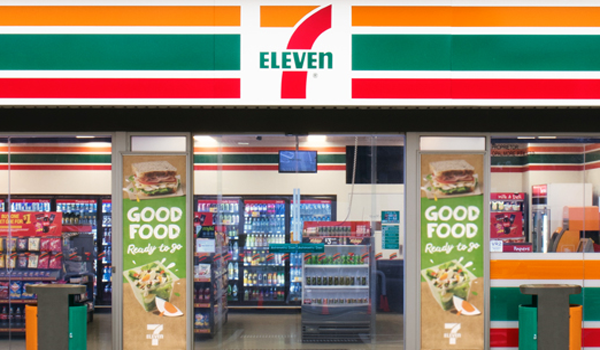A 7-Eleven operator in Sydney has been penalised a record $214,200 for deliberately short-changing two migrant employees and falsifying records, following legal action by the Fair Work Ombudsman.
Harmandeep Singh Sarkaria – who owns and operates the 7-Eleven fuel outlet at 354 Flushcombe Road in Blacktown – has been penalised $35,700 and his company Amritsaria Four Pty Ltd has been penalised a further $178,500.
They are the largest penalties secured against a 7-Eleven franchisee by the Fair Work Ombudsman, which has undertaken a range of compliance actions aimed at addressing systemic non-compliance by 7-Eleven nationally.
In his Federal Circuit Court judgment, Judge Justin Smith said Sarkaria had “deliberately flouted his legal obligations” and engaged in “a sustained and deliberate process of deception” aimed at maximising financial return.
“One of the aims of imposing a penalty is to mark a warning for others who might be tempted to engage in similar conduct,” Judge Smith said.
“There was evidence of substantial non-compliance by other 7-Eleven franchisees.”
Sarkaria underpaid two console operators at his Blacktown outlet a total of $49,426.
Most of the underpayment relates to a migrant employee from Pakistan, aged in his late 30s, who was short-changed a total of $43,633 between March, 2012 and March, 2014.
The other employee, also from Pakistan and aged in his mid-20s, was underpaid $5793 between August, 2013 and March, 2014.
The underpayments are the result of the employees often being paid rates equivalent to $10 an hour.
The employees were entitled to receive normal hourly rates of more $22 an hour and up to $29.27 an hour for some weekend, public holiday and overtime shifts.
Sarkaria made false entries into the 7-Eleven head office payroll system about the number of hours the employees had worked.
He also routinely made entries that the employees had worked only 10 hours a week, despite them working significantly more hours.
The entries gave the appearance that the employees were paid about $25 an hour.
He also provided Fair Work inspectors investigating the underpayments with false time-and-wages sheets.
Sarkaria and his company admitted contravening workplace laws and back-paid the two employees only after the Fair Work Ombudsman advised it was commencing legal action.
Judge Smith said that despite being “perfectly aware” of legal obligations relating to pay and record-keeping, Sarkaria had used records to “hide the fact that he was not paying two employees properly”.
“The contraventions were not accidental, but, rather part of a deliberate scheme aimed at maximising financial benefit to the respondents,” Judge Smith said.
“In other words, this was part of the respondents’ business model. In my view, this approaches the worst type of each contravention.”
Judge Smith said that despite Sarkaria admitting the contraventions and apologising in Court, he did not accept Sarkaria was contrite.
“He appeared to me still to be denying real responsibility for his actions,’ Judge Smith said.
“I am not convinced that he is truly sorry for his conduct.”
In addition to the penalties, Sarkaria and his company must commission professional audits of their compliance with workplace laws and undertake training on complying with workplace laws.
Fair Work Ombudsman Natalie James said the court’s decision sends a message that employers who set out to exploit workers face serious consequences.
“Anyone tempted to implement a business model that revolves around deliberate exploitation of workers should think again,” Ms James said.
“This type of conduct has no place in Australian workplaces and will not be tolerated.”
The Fair Work Ombudsman released a report on the findings of its Inquiry into the 7-Eleven franchise network in April.
The Inquiry found that a number of franchisees have been deliberately falsifying records to disguise the underpayment of wages.
Since the Fair Work Ombudsman was created in July, 2009, the agency has placed eight matters involving 7-Eleven franchisees before the courts.
Three of the matters have resulted in the courts imposing penalties and five of the matters remain before the courts.

